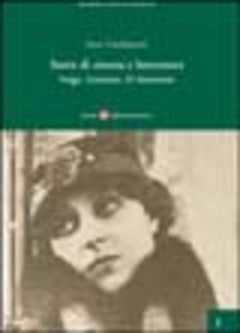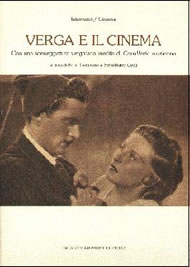- ANU Library
- LibGuides
- new production templates
- L'italiano al cinema, l'italiano nel cinema
- Italian cinema, literature and television
Discussing the interrelationships between film and literature, Italo Calvino once wrote: “There remains the fact that the cinema is continually being drawn toward literature. In spite of having such power of its own, the cinema has always been afflicted by jealousy of the written text: it wants to 'write'.” There are strands to the respective histories of the twentieth-century Italian novel and the Italian cinema that at times come together to form a kind of Gordian knot, so to speak, so tightly harnessed are they. At such times as these historical strands cross over, literature and cinema can be said to enter into a form of dialogue with one another. This dialogue between the Italian cinema and literature is amongst the most complex, fluid, and multifaceted to be found in any culture. To appreciate its full scope one has to acknowledge it at a number of interrelated levels. First, there is the most immediate and most commonly discussed question of adapting Italian novels to film form. -- from The Cambridge Companion to the Italian Novel
Caputo, R. (2003). Literary cineastes. In P. Bondanella & A. Ciccarelli (Eds.), The Cambridge Companion to the Italian Novel (Cambridge Companions to Literature, pp. 182-196). Cambridge: Cambridge University Press. doi:10.1017/CCOL0521660181.012
 Il piacere del racconto : narrativa italiana e cinema, 1895-1990
by
Cristina Bragalia
Il piacere del racconto : narrativa italiana e cinema, 1895-1990
by
Cristina Bragalia
 Il cinema nella lingua di Pirandello
by
Sergio Raffaelli
Il cinema nella lingua di Pirandello
by
Sergio Raffaelli
 Storie di cinema e letteratura : Verga, Gozzano, D'Annunzio
by
Irene Gambacorti
Storie di cinema e letteratura : Verga, Gozzano, D'Annunzio
by
Irene Gambacorti
 Verga e il cinema : con un testo di Gesualdo Bufalino e una sceneggiatura verghiana inedita di Cavalleria rusticana
by
Nino Genovese and Sebastiano Gesù
Verga e il cinema : con un testo di Gesualdo Bufalino e una sceneggiatura verghiana inedita di Cavalleria rusticana
by
Nino Genovese and Sebastiano Gesù
 Pirandello and Film
by
Jana O'Keefe Bazzoni; Maurice Charney (Preface by); Nina Da Vinci Nichols
Pirandello and Film
by
Jana O'Keefe Bazzoni; Maurice Charney (Preface by); Nina Da Vinci Nichols
 Il cinema come traduzione : da un medium all'altro : letteratura, cinema, pittura
by
Nicola Dusi
Il cinema come traduzione : da un medium all'altro : letteratura, cinema, pittura
by
Nicola Dusi
Page Contact: ANU Library Communication
+61 2 6125 5111
The Australian National University, Canberra
CRICOS Provider : 00120C

